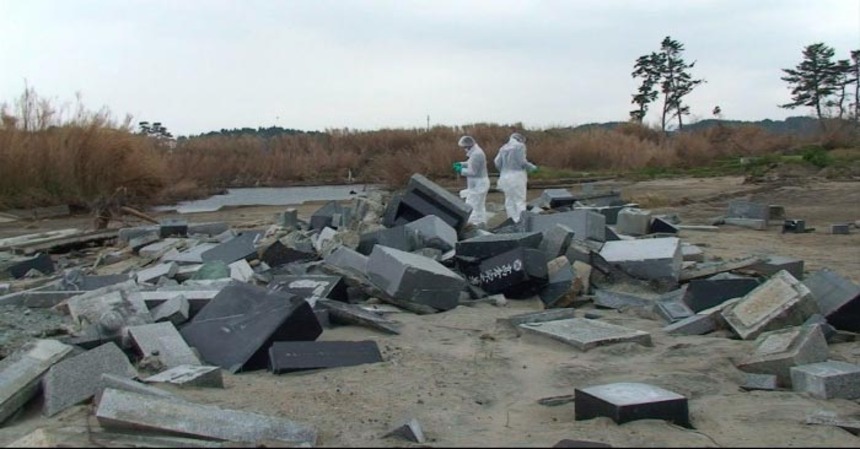Berlin 2012 Review: NUCLEAR NATION

Last year, when the earthquake and tsunamis in Japan caused several nuclear reactors to explode, the international media coverage began with articles crying "Panic!" and then seemed to abruptly shift to vaguely ominous, often convoluted reports of which it was difficult to really make heads or tails. Well, unless you were a nuclear scientist.
Nuclear Nation, one of three documentaries at the festival dealing with this recent disaster, offers some welcome first-hand perspective on the event by focusing on the population of an entire Fukushima township, Futaba, which was displaced immediately after the disaster. The inhabitants were evacuated and moved into a four-story school building... where many of them remain to this day.
While many other cities damaged by the disaster have begun to rebuild, Futaba has been declared an "exclusion zone" because of the damage to reactors in its large nuclear power plant, which a dilapidated sign outside the town still boasts of proudly. To add insult to injury, almost all of the power from the plant now making the town uninhabitable has always gone to Tokyo.
While the film is earnest, appropriately angry, and even sublime at moments, Director Atsushi Funahashi seems torn about whether he wants to make a meditative, observant record of the displaced town, or whether he simply wants to give the former inhabitants a direct mouthpiece to speak out against the government of Japan and the county's overdependence on nuclear energy. And, at nearly two and a half hours, the film is far too long.
At this point, I should note that the front page of the current press notes for the film reads, "Soon Available: Shorter version, TV version." So, take that as you will.
Much of the movie consists of fly-on-the-wall footage of the former inhabitants of Futaba as they adapt to new environment, demand compensation and attention (unsuccessfully) from the government, and at one point (and certainly a highlight of the film), even visit the wasteland that they used to call home. Meanwhile, interviews throughout with a several groups of characters make up the very loose narrative arc at the film.
The most interesting of these personalities is the mayor of the town, Katsutaka Idogawa, who still presides over his own "city hall" in an office in the school building. Originally a proponent of building a nuclear power plant in Futaba because of the subsidies and incentives promised by the government, Idogawa is gradually forced to admit that the nuclear power plant was a huge mistake for the town, despite the promises the government made.
However, too often the interviewees seem to repeat each other, and many of the blanket statements about the crisis and the tragedy of the town made by the evacuees in the second half of the film feel like they could have just as easily been from the first half. Or like maybe they actually were in the first half. Even the tranquil shots of rural beauty in Japan that normally compliment the dialogue nicely start to feel repetitive by the end. It's true that perhaps the repetition and long takes are meant to mirror the day-to-day life of the nearly one-thousand people who now call a four story school their home, but it's counter-productive to the more basic, important task of engaging the audience.
At the same time, Funahashi has shown remarkable dedication to his subjects and captured some amazing footage - One man who has continued to live less than twenty kilometers away from the explosion to make sure that his cows don't starve to death almost merits a documentary himself, and the footage of the numerous spectacles put on in the gym to entertain the nuclear refugees (e.g. Beatles cover bands, Randy-the-Ram-style wrestling) captures a unique sense of melancholy and displacement.
Indeed, Nuclear Nation has potential to be a great movie. However, it's not just a matter of trimming interviews here and there - the entire rhythm of the film isn't quite sure-footed enough to glide from the human element to the political implications and back again while still keeping viewers invested. If Funahashi finds this pace in the promised "shorter cut," then Nuclear Nation may well become the engaging, enlightening documentary that the subject matter merits.







